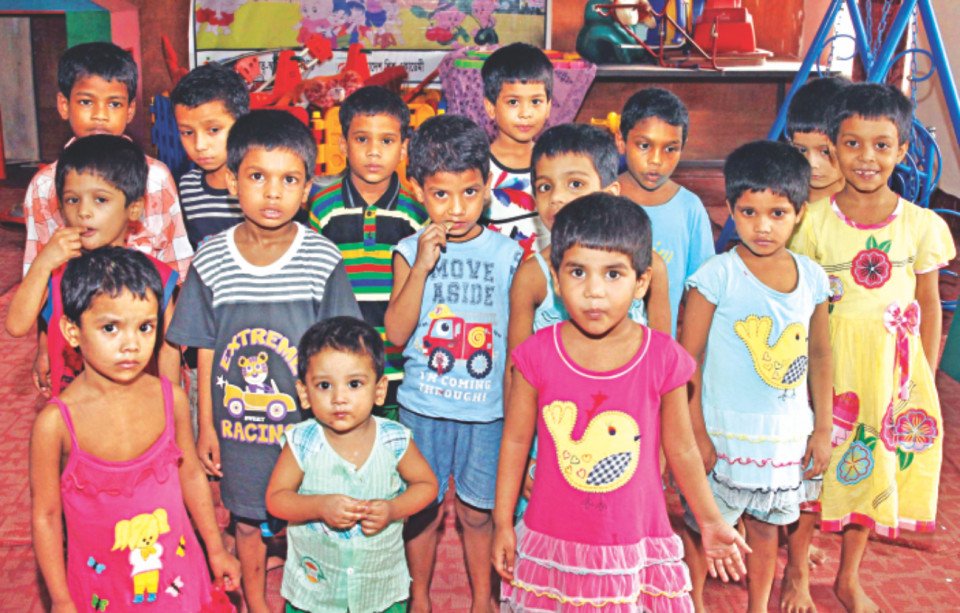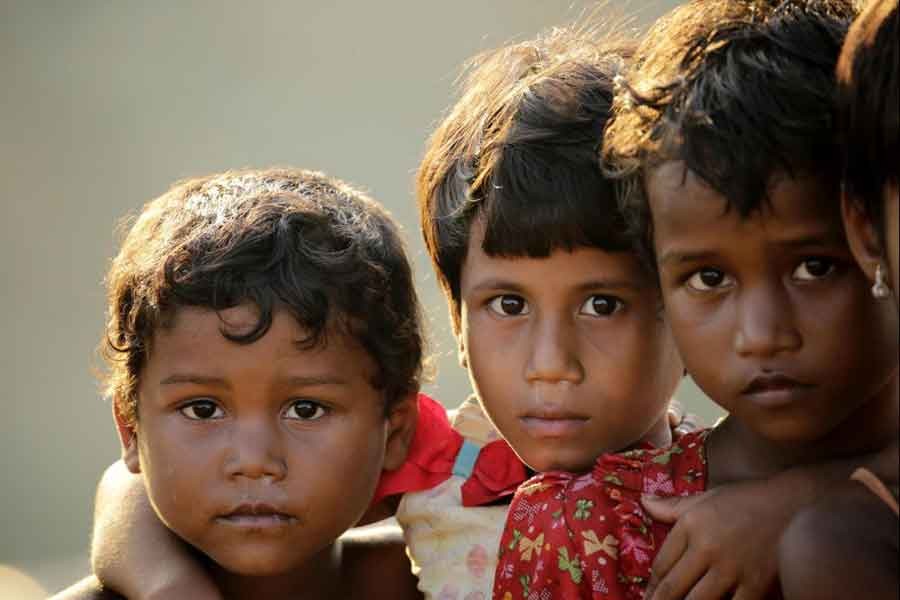Love for Orphans.With Eid nearing us, many service holders are eagerly waiting for the long-awaited holidays as well as the Eid bonus provided by their respective companies. Eid al-Adha holds great significance for muslims all over the world. According to their individual abilities, they all observe this occasion by performing animal sacrifice.

Although cattle markets in Dhaka are not yet in full swing, people who are planning to celebrate Eid in their villages, have already sent money to their family members living there. If the odds are in their favour, then people will at length enjoy their holidays and upload photos on Facebook, before returning to this busy city.
But here I am, thinking about the Azimpur Shishu Nibash (Children’s Home), the Kishore Unnayan Kendro in Tongi and the Kishori Unnayan Kendra at Konabari, Gazipur. I can overlook the the last two, but Azimpur Shishu Nibash? Well, this one has gotten stuck in my head. For the abandoned children living there, Eid is just another uneventful day.

The fact that there are no specific laws for child adoption in Bangladesh has not stopped people from adopting children amidst numerous complications. According to sociologists, due to various reasons, the number of childless couples is increasing, many of whom are showing their interest in adopting a child.
If a couple wants to take responsibility of an abandoned child, they have to file a petition for guardianship with the court. “I often go to the children’s home. Spending time with them is something I enjoy. If the laws were less complicated, I would raise one of them as my own child.”, says Zayeda Sharmin, an assistant professor at Shahjalal University of Science and Technology. Due to the complexity in the law for adopting a child, she could not take responsibility of that orphan.
Whether it is from a hospital, a government or non-government safe home, the process for child adoption appears to be complicated, which discourages everyone. However, guardianship and adoption are different from each other. As there are no laws for adopting a child in Bangladesh, someone who wants to take responsibility of a homeless child will have to do so by following the Family Court Ordinance, 1985. Nevertheless, this is applicable only in the Hindu Laws.
“It is because of the child’s safety that the process is made lengthy, so that we can determine whether or not the child is going to be in good hands. Otherwise, there would be chances for the orphan’s future to be at risk.”, says Advocate Salma Ali. In olden days, failing to father a child, would take a toll on a man’s social status, whereas, infertility would give women the label ‘ill-omened’. Therefore, in Hindu society, child adoption was introduced. In ancient times, this was done for financial or religious purposes. But is the scenario the same for recent times?
A.I. Mahbub, a professor from the department of Sociology in Dhaka University says, in modern days, the reasons are psychological and emotional. When faced with infertility, most people, after the age of forty, decide to foster a child to overcome loneliness.
Even when a child is adopted after the completion of a lengthy, complicated legal process, he or she will still not be allowed to claim his or her parents’ properties. That is because Bangladesh, being a muslim majority country follows the Islamic rules. Dr. Saiyad Abdullah Al-Maruf said that according to Islam, adopted children do not have any share in inheritance. In fact, they will not even have their guardian’s surname. However, the guardians can donate their properties to the child if they want.” After the death of the guardians, relatives deprive the child of his/her share in the properties and unfortunately enough, there is no law to prevent such deed.”, says professor Shahnaz Huda from the Department of Law, Dhaka University.
In many countries of the world, adopted children have the same rights as biological children, when it comes to inheritance. But in Bangladesh, the law is not the same for all religions. “We believe, it would be better for a child to be raised in a family instead of an orphanage. Therefore, we hope to make the matters easier to deal with.”, said Nasima Begum. She added that once the law is formulated, people will be allowed to bring homeless children under Government supervision to their own families. Moreover, until the age of eighteen,the whole process of them being raised will be observed by the Government. It is believed that afterwards, they will be able to take responsibility for themselves.
You may read Child Artist Biography :
- Tawhidul Islam Taif
- Jaffna Subaita Hasan
- Jahin Rahman
- Ishrak Turzo
- Ariyan Mohammod Dihan
- Mymuna Islam Medha


